BYD Han vs VW ID.7 - Differences and prices compared
Compare performance (517 HP vs 340 HP), boot space and price (59200 £ vs 46400 £ ) at a glance. Find out which car is the better choice for you – BYD Han or VW ID.7?
Costs and Efficiency:
Price and efficiency are key factors when choosing a car – and this is often where the real differences emerge.
VW ID.7 has a evident advantage in terms of price – it starts at 46400 £ , while the BYD Han costs 59200 £ . That’s a price difference of around 12785 £.
In terms of energy consumption, the advantage goes to the VW ID.7: with 13.60 kWh per 100 km, it’s noticeable more efficient than the BYD Han with 18.50 kWh. That’s a difference of about 4.90 kWh.
As for electric range, the VW ID.7 performs clearly perceptible better – achieving up to 708 km, about 187 km more than the BYD Han.
Engine and Performance:
Under the bonnet, it becomes clear which model is tuned for sportiness and which one takes the lead when you hit the accelerator.
When it comes to engine power, the BYD Han has a evident edge – offering 517 HP compared to 340 HP. That’s roughly 177 HP more horsepower.
In acceleration from 0 to 100 km/h, the BYD Han is distinct quicker – completing the sprint in 3.90 s, while the VW ID.7 takes 5.40 s. That’s about 1.50 s faster.
There’s no difference in top speed – both reach 180 km/h.
There’s also a difference in torque: BYD Han pulls slight stronger with 700 Nm compared to 679 Nm. That’s about 21 Nm difference.
Space and Everyday Use:
Whether family car or daily driver – which one offers more room, flexibility and comfort?
Both vehicles offer seating for 5 people.
In curb weight, VW ID.7 is slight lighter – 2180 kg compared to 2325 kg. The difference is around 145 kg.
In terms of boot space, the VW ID.7 offers clearly perceptible more room – 532 L compared to 410 L. That’s a difference of about 122 L.
When it comes to payload, VW ID.7 distinct takes the win – 465 kg compared to 335 kg. That’s a difference of about 130 kg.
Who wins the race in the data check?
The VW ID.7 comes out modestly ahead in the objective data comparison.
This result only shows which model scores more points on paper – not which of the two cars feels right for you.
Costs and Consumption
View detailed analysis
Engine and Performance
View detailed analysis
Dimensions and Body
View detailed analysis
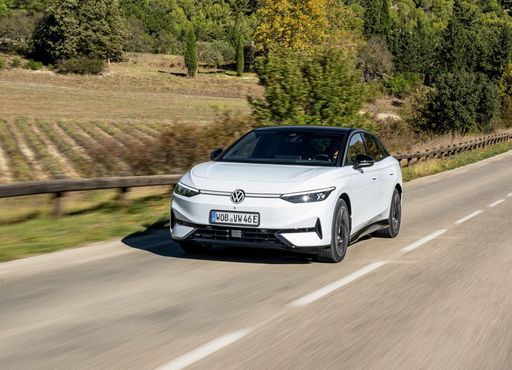
VW ID.7
BYD Han
The BYD Han is a sleek, cinematic fastback saloon that pairs dramatic styling with a surprisingly plush cabin and a genuinely high-tech feel. It undercuts established rivals on price while delivering composed handling, generous equipment and long-legged electric confidence — a car that will make badge-conscious buyers sit up and take notice.
details
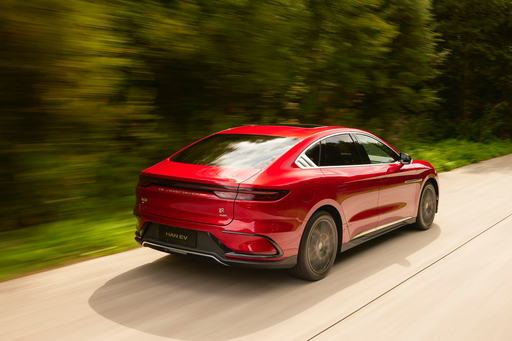
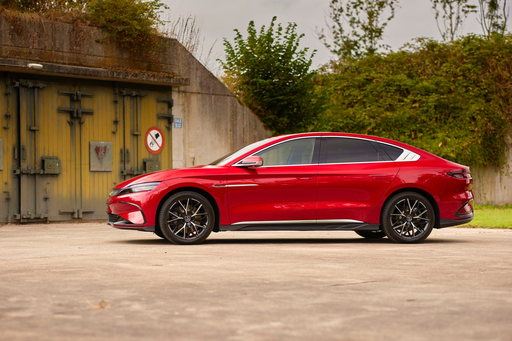
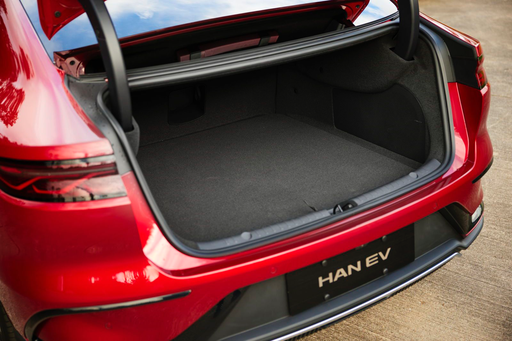
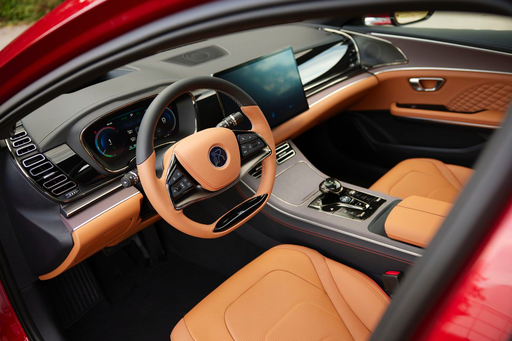
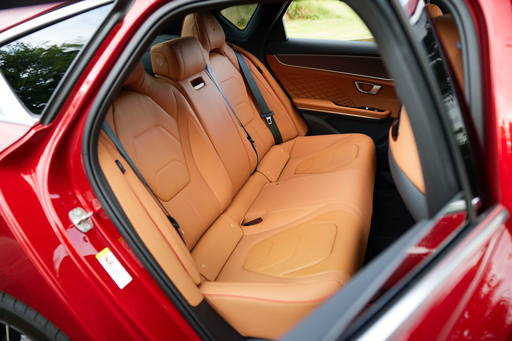
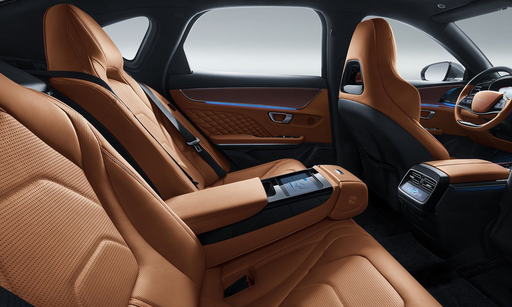
VW ID.7
VW ID.7 arrives as Volkswagen's electric grand tourer, pairing a low-slung, aerodynamic silhouette with a calm, understated interior that prioritizes comfort and space. It’s a sensible choice for buyers who want a relaxed, high-tech cruiser that covers motorway miles with poise rather than bravado.
details
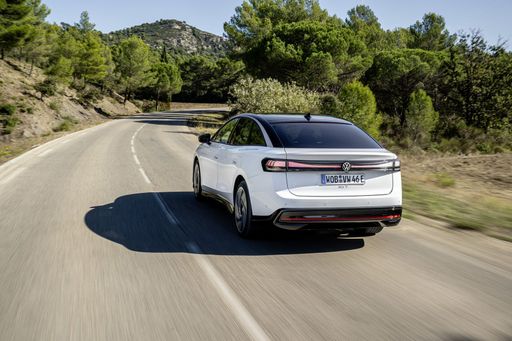
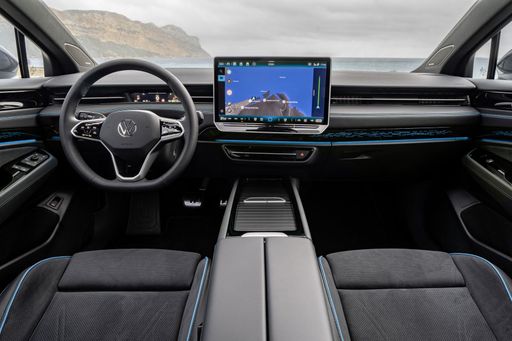
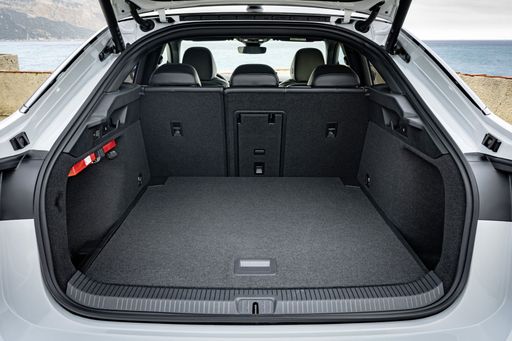
Costs and Consumption |
|
|---|---|
|
Price
59200 - 62200 £
|
Price
46400 - 54200 £
|
|
Consumption L/100km
-
|
Consumption L/100km
-
|
|
Consumption kWh/100km
18.50 kWh
|
Consumption kWh/100km
13.6 - 16.2 kWh
|
|
Electric Range
521 km
|
Electric Range
594 - 708 km
|
|
Battery Capacity
-
|
Battery Capacity
77 - 86 kWh
|
|
co2
0 g/km
|
co2
0 g/km
|
|
Fuel tank capacity
-
|
Fuel tank capacity
-
|
Dimensions and Body |
|
|---|---|
|
Body Type
Sedan
|
Body Type
Hatchback
|
|
Seats
5
|
Seats
5
|
|
Doors
4
|
Doors
5
|
|
Curb weight
2325 kg
|
Curb weight
2180 - 2325 kg
|
|
Trunk capacity
410 L
|
Trunk capacity
532 L
|
|
Length
4995 mm
|
Length
4961 mm
|
|
Width
1910 mm
|
Width
1862 mm
|
|
Height
1495 mm
|
Height
1535 - 1536 mm
|
|
Max trunk capacity
-
|
Max trunk capacity
1586 L
|
|
Payload
335 kg
|
Payload
460 - 465 kg
|
Engine and Performance |
|
|---|---|
|
Engine Type
Electric
|
Engine Type
Electric
|
|
Transmission
Automatic
|
Transmission
Automatic
|
|
Transmission Detail
-
|
Transmission Detail
Reduction Gearbox
|
|
Drive Type
All-Wheel Drive
|
Drive Type
Rear-Wheel Drive, All-Wheel Drive
|
|
Power HP
517 HP
|
Power HP
286 - 340 HP
|
|
Acceleration 0-100km/h
3.90 s
|
Acceleration 0-100km/h
5.4 - 6.6 s
|
|
Max Speed
180 km/h
|
Max Speed
180 km/h
|
|
Torque
700 Nm
|
Torque
545 - 679 Nm
|
|
Number of Cylinders
-
|
Number of Cylinders
-
|
|
Power kW
380 kW
|
Power kW
210 - 250 kW
|
|
Engine capacity
-
|
Engine capacity
-
|
General |
|
|---|---|
|
Model Year
2023
|
Model Year
2023 - 2024
|
|
CO2 Efficiency Class
A
|
CO2 Efficiency Class
A
|
|
Brand
BYD
|
Brand
VW
|
What drivetrain options does the BYD Han have?
Available configurations include All-Wheel Drive.
